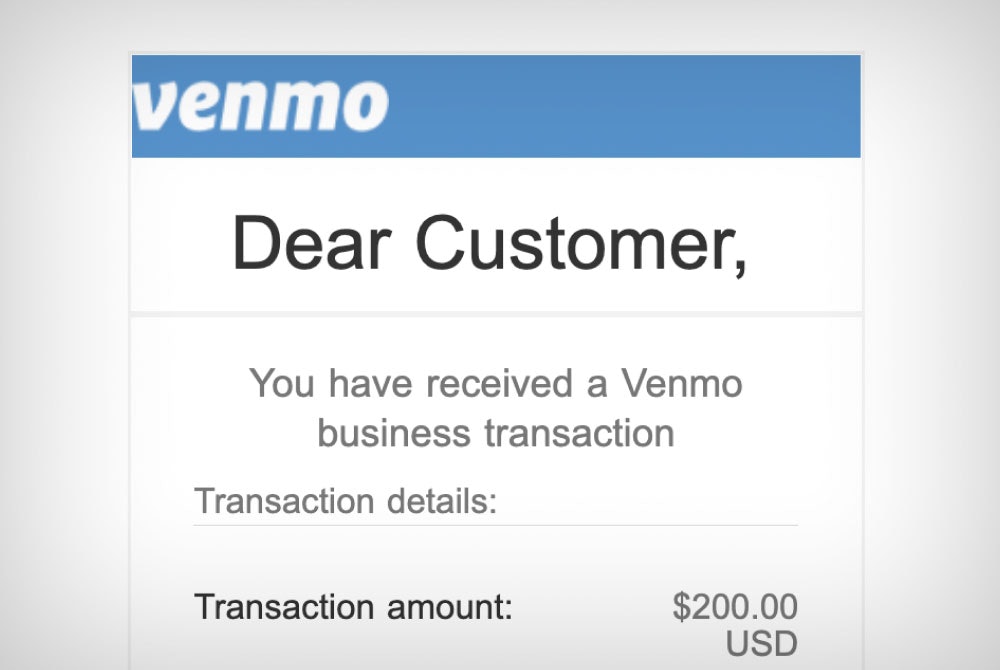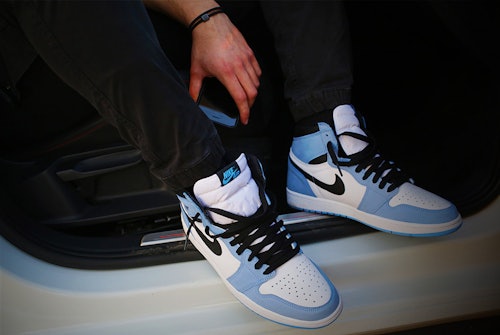- 6 Tips to Beating PayPal Scams
- PayPal Scams: Red Flags To Watch Out For
- Report PayPal Scams
- Common PayPal Scams
- Frequently Asked Questions
PayPal has over 361 million users, making it a prime target for scammers. Because PayPal allows people to pay and accept payments without meeting face-to-face, the possibility of getting scammed can be significantly higher than with more traditional payment methods. However, you can protect yourself while using the platform and take measures to beat PayPal scams.
6 Tips to Beating PayPal Scams
Although PayPal scams are common, it doesn't mean PayPal isn't safe to use—it is still safer than other forms of money transfer, especially since it offers some protection for its users.
1. Keep Your Bank Account Safe
If you're worried about falling for a PayPal scam, a good tip is to avoid linking your debit card or bank account to your PayPal account because if someone were to get inside your PayPal account, they could also empty your bank account. In addition, when your PayPal and bank account are linked, an attacker can transfer money from your bank account to your PayPal account and then send it to themselves. You can avoid this if you don't link the two.
It's better to link your PayPal account to a credit card instead, as it gives you an extra layer of protection from scammers. Not only will PayPal reimburse you if an item you purchased wasn't as described or never arrived, but you can also dispute the charge with your credit card company.
2. Verify PayPal Links and Emails
If you see a link in an email that appears to be from PayPal, don't click on it. It may be a spoof email, which has from a scammer. These emails will often have links that lead to a website that looks like a PayPal site (although you may spot some flaws) and asks you to enter your login credentials.
This is a common PayPal phishing scam that has been around for years. Some fake PayPal links may also come from individuals pretending to buy or sell items on sites like Craigslist but are actually trying to scam you.
3. Pay Attention to Your PayPal Balance
It's also wise to keep a close eye on your PayPal and bank account balance. Thieves often make small withdrawals in the hopes that you won't notice. Monitor your account closely as you would your regular bank account, especially if you tend to keep money in your PayPal account.
4. Enable Two-Step Verification
To add an extra layer of protection to your PayPal account, enable two-step verification (2SV) within your account settings. Once this is activated, you'll need a second code (sent to your phone or retrieved using an authenticator app) whenever you try to log in.
This means that even if a scammer has your PayPal username and password, they won't be able to get into your account because they'll need your 2SV code.
5. Protect Your Devices
You should always ensure your computer is up to date with the latest malware protection software. This will repel attempts to hack into your computer and steal your files and information.
6. Don’t Use Public WiFi
You should also avoid using public WiFi when using PayPal or logging into any accounts, for that matter. On a public WiFi connection, it's easy for a hacker to intercept your online communications.
Not All Transactions Are Protected
Although PayPal offers protection for buyers and sellers, not every transaction is covered. For example, PayPal won't cover items bought and sold in person; only things sold online.
PayPal Scams: Red Flags To Watch Out For
Usually, when someone tries to use PayPal to scam you, there are some signs of foul play that should raise some flags for you.
- Requests to rush a shipment. If you're selling something and the buyer asks for a rushed shipment, they may be hoping you won't do your due diligence to check the payment has gone through first. They may have sent you a fake PayPal email to make it look like they made the payment, and hope you don't check your account.
- Overpayment for an item. In overpayment scams, the buyer (i.e., the scammer) will ask you to refund the extra money they "accidentally" sent you via wire transfer or ask you to give it to a third party (e.g., movers) who are also part of the scam.
- Sketchy emails or links. Fake PayPal emails are prevalent and key to phishing scams. Look for spelling/grammatical errors, blurry images, and strange links (i.e., non-PayPal links) to uncover a scam. If you're unsure if you've received a fake PayPal email, don't click on any links. Instead, log into your PayPal account directly from PayPal.com to check for messages and notifications.
In addition to looking out for these red flags, you should also use best practices when doing anything online. See our tips on how to stay safe online.
Report PayPal Scams
If you notice any unauthorized activity on your PayPal account, it’s essential to report it to PayPal right away. Reporting quickly can help you get your money back (although not always guaranteed), and it can also help PayPal better detect these kinds of attacks in the future.
To report potentially fraudulent activity, you should:
- Go to the Resolution Center (you'll need to sign in to your account)
- Click where it says “Report a Problem”
- Find the transaction ID that you would like to dispute and select it
- Click Continue
- Choose “I want to report unauthorized activity”
- Follow the provided instructions to make a report.
It's important to verify links and contact details to beat imposters.
You can also report PayPal scams to the Federal Trade Commission (FTC) and the Internet Crime Complaint Center, which will help authorities stop the scammers.
Common PayPal Scams
While scammers use several tactics, some are more common than others. It's vital to stay educated on any new scams lurking so you can better prepare for them and protect yourself.
Account Suspension Scam
If you get an email that says your account is in danger of getting suspended, you may be the target of attempted fraud. It's common for thieves to make it look like an email is coming from PayPal and then put a threatening message in it to get an emotional reaction.
These emails may also request your account password. PayPal doesn't ask for login information over email. These spoof emails may also include a link to a site that looks much like the real PayPal site, hoping you enter your login credentials there.
Fake PayPal Payment Notification Email
If you are a seller, you may occasionally get a fraudulent message claiming you have received payment when, in fact, you haven't. Scammers send fake emails hoping you send them the item you're selling without checking to see if you've actually been paid for it. They may even link you to a fraudulent transaction details page to make you think the buyer paid for the product.
It's best to log into your PayPal account to verify that payment has been made.
Overpayment Scam
Fraudsters may also send you an email claiming a buyer overpaid. For example, you may be selling a phone for $300, and you get an email saying the buyer paid, but they sent you $400, which is $100 too much.
The email will then direct you to send both the phone and the overpayment amount to the "buyer." But, of course, in reality, you weren't paid at all, and you'd be sending both the item and extra money to a scammer.
Fake Charities
Scammers that set up fake charities to trick you into sending them money often ask for a PayPal payment. They'll create a legitimate PayPal account and set up a website with a fraudulent charity. After stealing your money, they usually take down the fake charity website and close the PayPal account.
Shipping Scams
Many common PayPal scams revolve around shipping. Sometimes, a buyer may ask you to use their shipping company and provide you with a shipping label. If you do this, you risk the buyer switching up the shipping address on you, then complaining that they never received the item.
In some cases, they may ask you to use a fake shipping company, which takes off with your money.
Always buy your own shipping label and send the items to the address on the transaction details page, even if the buyer requests that you send it to a different address.
PayPal Phishing Scams
The most common PayPal scams are designed to steal your information. They usually start as a fake PayPal email or text message with a link to a fake PayPal website. The scammer will attempt to steal your PayPal login information, credit card details, or bank account number to steal your money.











Comments